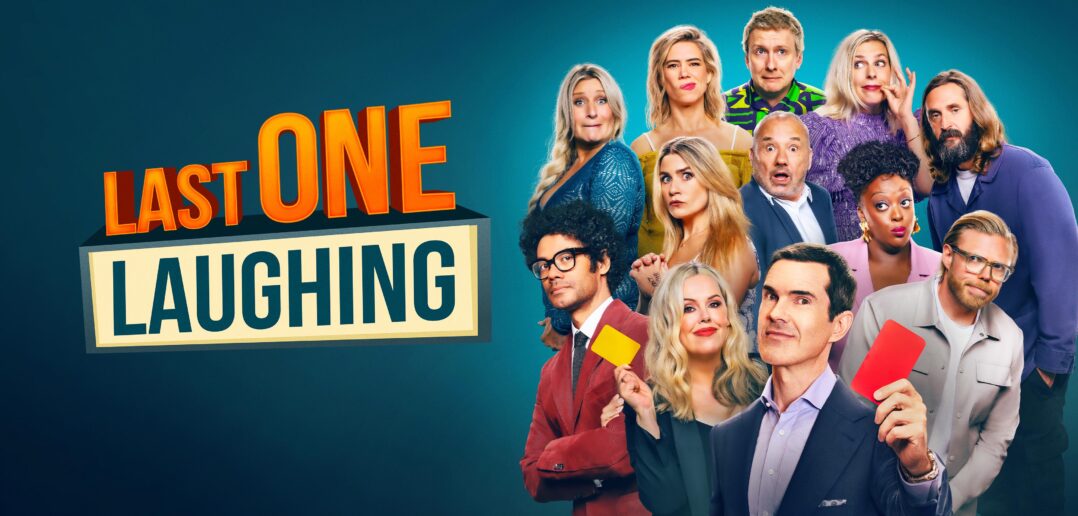In today’s fractured media landscape, unscripted formats have emerged as TV’s most adaptable global IP. Their plug‑and‑play design – complete with episode bibles, host‑selection toolkits, and blueprints for spin‑offs, live events, and digital extensions – makes them inherently scalable. Built‑in modularity allows for quick adaptation across markets and platforms, delivering speed and reach that most scripted series can’t match.
Here’s how today’s leading players are treating unscripted formats as long-tail IP engines – not just one-off shows.
Formats as IP Ecosystems
Top formats are conceived as ecosystems from the start. Amazon MGM Studios’ LOL: Last One Laughing began as Documental in Japan (2016) and launched internationally in Mexico (2018). It now spans 25+ local editions – from Germany to South Africa – each version fine‑tuned to local humour while feeding a global fanbase.
Similarly, Taskmaster (UK, 2015, distributed by Avalon) has expanded into Junior Taskmaster (premiering November 2024), multiple Champion of Champions and New Year’s specials. Plus, ancillary products, including an official board game, a VR experience, and a mobile app – each new extension reinforcing the brand and unlocking additional revenue streams.
Modularity is the New Superpower
Modular formats enable seamless global roll-out. The A Talks (premiered on France 2, 2022, distributed by Can’t Stop Media), featuring neurodivergent interviewers, has been commissioned in several key European countries, like the UK, Spain, the Netherlands, and soon Australia. Each version follows the same episode structure, interviewer toolkit, and guest‑selection guidelines, proving its true “plug‑and‑play” design.
ITV Studio’s Love Island: All Stars shows how villa‑based mechanics plus dynamic challenges and reunion specials can drive social-first content – extending reach through viral clips and looping new audiences back to linear broadcasts.
Spin-Offs as Strategic IP Plays
Spin‑offs have evolved from nice-to-have to strategic value drivers. All3Media’s The Traitors boasts 30 local commissions, 35+ adaptations, a board game, mobile app, and even a live immersive experience in London. Each extension not only opens new rights windows but also deepens the format’s cultural resonance and long-tail earnings.

Banijay’s MasterChef now underpins one of TV’s largest culinary IP families, with more than 65 local versions aired in over 200 countries. Its universe spans flagship and spin‑off series (Pros, Celebrity, Junior, Dessert Masters) – and extends into board games, a mobile game called MasterChef games, a global YouTube tutorial network, and live restaurant partnerships. Each new window drives back‑catalogue interest.
Cultural Specificity and Global Leverage
While the UK and US still account for the largest share of format exports, non‑Anglophone territories have repeatedly delivered breakthrough IPs that owe their global success to vivid local DNA. Take South Korea’s King of Mask Singer which inspired the international Masked Singer (distributed by Fremantle) phenomenon, has generated around 60 adaptations – each version reflecting its own unique musical tradition and performance styles.
Belgium’s De Mol (premiered in 1998, distributed by Primitives) has been licensed in 40+ territories, with each local edition reinterpreting its sabotage‑driven gameplay and social dynamics. These formats prove that culturally grounded, yet modular IPs can achieve both local resonance and global scale.
Data and AI are reframing Format Development
Analytics and AI are transforming format development. The WIT uses AI for their Fresh Garden session to score new shows on market potential. As Virginia Mouseler explained: “We have been looking for what we consider to be the non-scripted shows of tomorrow. As a twist, they will all will be submitted to an AI evaluation of their market potential.”
BBC Studios pre‑sold The 1% Club to three territories before its UK premiere, proving how analytics and AI‑assisted promo testing can unlock pre‑emptive sales and ensure new formats land with impact.
Unscripted formats are modular, culturally tuned, data‑driven IP engines – built to roll out rapidly across territories, platforms and windows. The smartest players don’t treat them as shows. They treat them as scalable ecosystems.




